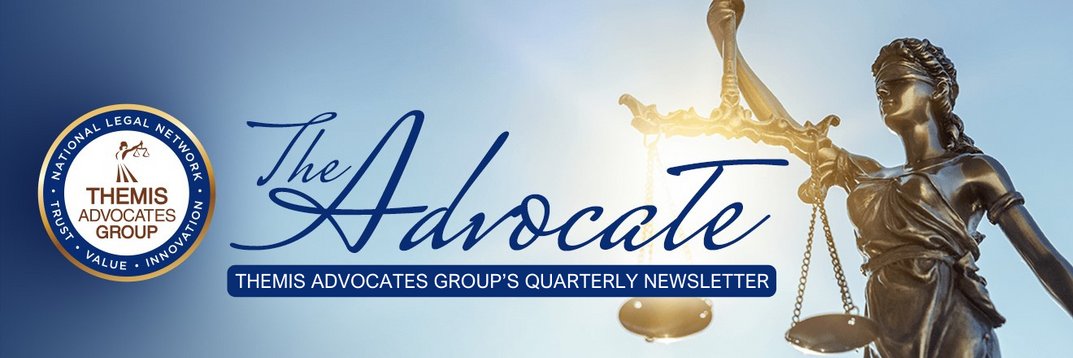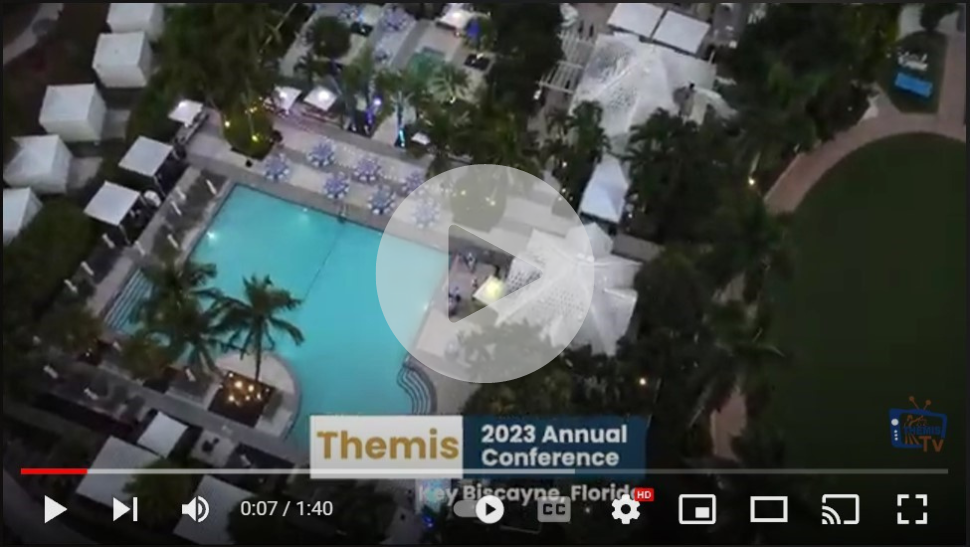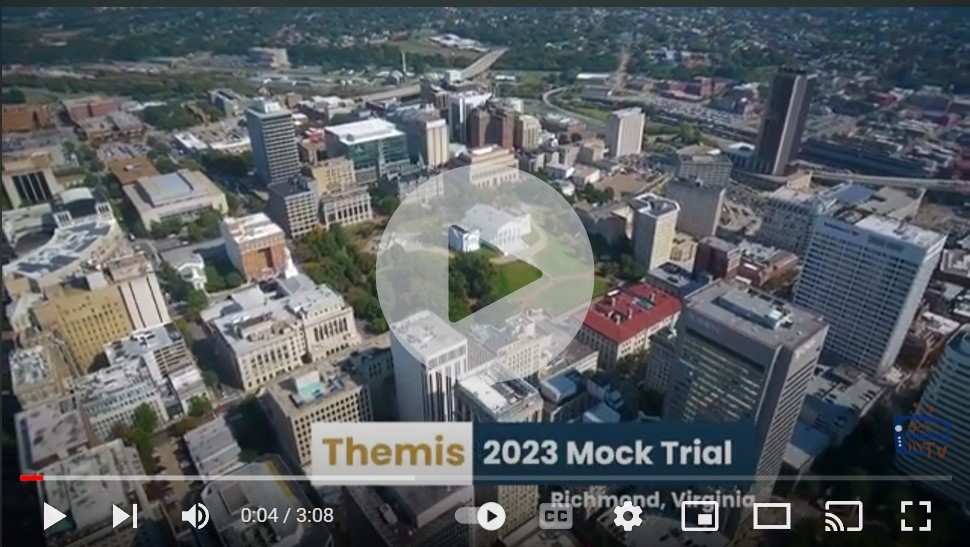Lederer Weston Craig Trial Results
December 2023 • Source: Lederer Weston Craig
Lederer Weston Craig attorneys Kent Gummert and Alexandra Galbraith Davis tried a legal malpractice claim in Polk County, Iowa in November 2023. LWC defended its client after the client missed the statute of limitations to pursue an underinsured motorist claim. The client admitted liability; the only issue at trial was damages. The Plaintiffs asked for $275,000 at trial, and the jury rendered a verdict of $29, 983.60. After offsets from underlying settlements, the likely judgment will be $2,000.
|
Gary Lovell Inducted Into the Litigation Counsel of America
November 2023 • Source: Copeland, Stair, Valz & Lovell, LLP
Copeland, Stair, Valz & Lovell, LLP proudly announces that Gary Lovell has been inducted into membership as a fellow in the Litigation Counsel of America. The Litigation Counsel of America is an invitation only Lawyer Honorary Society composed of less than one-half of one percent of American lawyers. Fellows are selected based upon effectiveness and accomplishment in litigation, both at the trial and appellate level, and superior ethical reputation. Gary’s 36+ years of practice and 100+ jury trials of catastrophic cases show his dedication to the art and science of litigation, as reflected in his invitation to membership in the Litigation Counsel of America and the American Board of Trial Advocates.
|
Dan Folluo of Rhodes, Hieronymus, Jones, Tucker & Gable was inducted as a Fellow of the International Academy of Trial Lawyers (IATL) during its 2023 annual meeting
October 2023 • Source: Rhodes, Hieronymus, Jones, Tucker & Gable
The International Academy of Trial Lawyers limits membership to 500 Fellows from the United States in addition to Fellows from nearly 40 countries across the globe. IATL seeks out, identifies, acknowledges, and honors those who have achieved a career of excellence through demonstrated skill and ability in jury trials, trials before the court, and appellate practice. Members are engaged in civil practice on both the plaintiff’s and the defendant’s side of the courtroom, and the trial of criminal cases. The Academy invites only lawyers who have attained the highest level of advocacy. A comprehensive screening process identifies the most distinguished members of the trial bar by means of both peer and judicial review.
Chartered in 1954, the Academy’s general purposes are to cultivate the science of jurisprudence, promote reforms in the law, facilitate the Administration of Justice, and elevate the standards of integrity, honor, and courtesy in the legal profession |
 |
Summer 2023 Newsletter
|
Our Mission • Events • Themis TV • Themis Courthouse • Members in the News
Sponsor Articles • Contribute to the Newsletter • Thank You Sponsors |
|
TRUST | VALUE | INNOVATION
The mission of Themis Advocates Group is to provide the most skilled, aggressive, and cost-efficient legal services to our clients by maintaining a national network of preeminent law firms that share information, procedures, technology, and client feedback.
|
|
UPCOMING THEMIS EVENTS
Dinner at TIDA Annual Seminar - RSVP by September 28. | View PDF invite.
October 12, 2023 | 7:00 PM
Joe’s Seafood, Prime Steak & Stone Crab | Las Vegas, NV
Themis NexGen '23 Summit - Find out more and RSVP. | View PDF invite.
November 15-16, 2023
Hotel ZaZa | Dallas, TX
Themis Week in NYC - Formal invitations to be distributed in Fall 2023.
December 5-7, 2023
New York, NY |
|
INTRODUCING THEMIS TV

We are excited to launch our new YouTube Channel, Themis TV.
Themis TV is a compilation of event highlights and recordings of past educational sessions/webinars. Easily share highlight reels and look back on programming content you may have missed. Subscribe to Themis TV and never miss out on our exclusive content.
|
2023 Annual Conference Highlight Reel
 |
2023 Mock Trial Highlight Reel
 |
|
|
THEMIS COURTHOUSE
Supreme Court Reins in Government Fraud Theories
The Supreme Court issued two opinions limiting the reach of federal wire fraud statutes. The decisions in Ciminelli v. United States, 598 U. S. (2023) and Percoco v. United States, 598 U. S. (2023) follow a trend of the Supreme Court overturning convictions involving conduct that could be considered unethical but does not fall within the defined categories of fraud or corruption.
The wire fraud statute, 18 U.S.C. § 1343, criminalizes the use of interstate wires for “any scheme or artifice to defraud, or for obtaining money or property by means of false or fraudulent pretenses, representations, or promises.” The honest services fraud statute, 18 U.S.C. § 1346, defines “scheme or artifice to defraud” to include a scheme to deprive another of the intangible right-of-honest services. Read the full article.
August 2023 • Source: John. H. Shaffery, Esq., Poole Shaffery
Rule 11 - An Underutilized Tool - One Defense Attorney's Thoughts
What to do? What to do? We’ve all heard that the defense bar tends to lag in its response to the latest-and-greatest strategies employed by plaintiffs’ counsel to bludgeon defendants and their insurers into settling claims that are winnable and enhancing jury verdicts beyond something resembling justice. Think Reptile. Think unanchored verdicts (i.e. waiving medical specials results in higher verdicts).
What if, in unison and across the country, we were to seek Rule 11 (or applicable state statute) sanctions more often, and even preemptively at the outset of litigation? What if, in unison and across the country, we conduct discovery in a sort of “Defense-Reptile” fashion – calculated to draw out potentially sanctionable conduct of the opposition. Of course, we would do so consistent with our ethical obligations and only when the facts of a case so warrant. Read the full article.
August 2023 • Source: Elizabeth R. Sharrock, Partner, Rhodes Hieronymus Jones Tucker & Gable, PLLC, with assistance of Scott Love, Intern
Maryland Increased the Jurisdictional Limits to Demand a Jury Trial From $15,000 to $25,000
On Tuesday, November 8 of 2022 Maryland voters voted to approve a constitutional amendment to increase the minimum amount in controversy that guarantees a jury trial from $15,000 to $25,000. This change went into effect as of December 4, 2022.
The $30,000 amount in controversy limit for District Court was not amended as part of the ballot measure meaning that cases with amount in controversy between $25,000 and $30,000 have the option of remaining in District Court for a bench trial or being pled up to Circuit Court for a jury trial. The Maryland Association for Justice, whose members are primarily plaintiff’s attorneys supported the measure along with the Maryland State Bar Association (MSBA). Read the full article.
August 2023 • Source: DeCaro, Doran, Siciliano, Gallagher & DeBlasis, LLP
Reshaping the Human Experience and Exploiting the Human Condition: The Disturbing Reality and Risk of Unregulated Technologic Developments
The most disturbing reality with emerging disruptive technologies is the absence of ethical and regulatory oversight. A Google whistleblower is claiming that Google built a machine that has human consciousness. Google immediately fired him and issued a press release that Artificial Intelligence (“A.I.”) is nowhere close to human consciousness. But how would the average human know? We don’t! Another disturbing technologic development is Deep Fake technology. Deep Fake software developers are hard pressed to articulate why this technology is helpful to humanity, yet forge ahead at light speed to get their products into the market. While the value of vehicle telematics to cell phone data tracking to reduce risk is well documented, there is still very little oversight and thought about the downsides and misuse of these technologies. It is critical that insurers and attorneys understand the risks presented by these emerging and disruptive technologies so that claims professionals and defense lawyers can begin to build strategies and initiatives to handle unique claims from the implementation of these technologies. Read the full article.
August 2023 • Source: Elizabeth S. Fitch, Melissa Lin, and Kyle James, Righi Fitch Law Group
Large, Well-known Massachusetts Franchisees Face Recent Labor Violations
Over the past three months, two national brands have paid large settlements to workers for labor violations at various Massachusetts locations. First, two Dunkin’ Donuts franchisees, located in central and southeastern Massachusetts, were fined a collective $370,000 for child labor violations. After a complaint to the Attorney General’s Office alleging that the locations were in violation of M.G.L c. 149, investigators uncovered over one thousand instances of violations of child labor statutes.
Between the two locations, the violations included employing minors after 8:00 P.M. without adult supervision, employment of 16- or 17-year-olds for more than nine hours a day, employment of minors earlier than 6:00 A.M., and failing to obtain valid work permits. Since January of 2022, the AG’s Office has issued 32 citations against various Dunkin’ franchisees, the majority being related to child labor violations. In sum, the violations have totaled over $560,000. Read the full article.
August 2023 • Source: Michael "Maz" Mazurczak, Melick & Porter, LLP
US Supreme Court Ruling to Make Philadelphia the Center of Personal Injury Litigation
On June 27, 2023, the United States Supreme Court issued a ruling in Malloy v. Norfolk Southern Railway Co. (600 U.S. ___ (2023))[1], that upheld a Pennsylvania Statute granting Pennsylvania State Courts general jurisdiction over all foreign corporations that register to do business in Pennsylvania. This ruling has the potential to drastically increase the number of cases that are filed in Pennsylvania, with a particular emphasis on personal injury cases.
The Mallory case involved a claim for damages due to illnesses that were allegedly caused by exposure to carcinogens. Plainitff was a longtime Norfolk Southern freight mechanic and worked for the company in Ohio and Virginia. While Plainitff lived in Pennsylvania for a period of time, he does not allege that he sustained any exposure to the cancer-causing chemicals while in Pennsylvania. Read the full article.
[1] Malloy v. Norfolk Southern was not directly handled by Zarwin Baum attorneys.
August 2023 • Source: Ross J. Di Bono., Zarwin, Baum, DeVito, Kaplan Schaer Toddy, PC
Man’s Best Liability: A Brief Overview of Homeowner’s Insurance and Dog Bites*
The issue of insurance coverage in the event of a dog bite is becoming a more and more common problem as time goes by. The American Veterinary Medical Association has found that there are nearly 85 million dogs living in US households and according to the Insurance Information Institute dog bites make up approximately one-third of homeowners insurance claims and these claims have increased by ninety percent over the last fifteen years with a 2.2 percent jump from 2020 to 2021 alone. This makes sense considering the 4.5 million people are bitten by dogs each year in the United States. And these injuries can carry hefty financial consequences, as of 2021 the average award for dog bite cases (taking into consideration both settlements and trial verdicts) was $49,025. Read the full article.
August 2023 • Source: Michael "Maz" Mazurczak, Melick & Porter, LLP
Highway Accident Fairness Act of 2023 Attempts to Strengthen Penalties for Staged Commercial Motor Vehicle Accidents and Mandate Disclosure of Third-Party Litigation Funding
The Highway Accident Fairness Act (H.R. 2936)(118th Congress) was introduced by Representative Henry Cuellar (D-TX) and cosponsored by Garret Graves (R-LA) and Mike Bost (R-IL) on April 27, 2023. The bipartisan legislation is intended to make it a federal crime to intentionally cause an accident with a commercial vehicle and to make a false claim for damages. The goals of the Highway Accident Fairness Act of 2023 is to “reduce unnecessary lawsuits, lower car insurance rates, and increase safety on our roads.”[1]
The three main goals of the Act include establishing criminal penalties for staged highway accidents involving commercial motor vehicles (CMVs), provide federal courts jurisdiction in cases involving accidents with truck crashes involved in interstate commerce and exceeds $5 million; and to require the disclosure of third-party litigation financiers.[2] Read the full article.
[1] “ Graves Introduces Legislation to Make Staged Collisions a Federal Crime” June 28, 2023 Press Release of Congressman Garret Graves.
[2] https://www.trucking.org/news-insights/4-new-trucking-bills-watch-congress.
August 2023 • Source: Ney J. Gehman and Trent P. Roddy, Perrier & Lacoste
|
|
THEMIS MEMBERS IN THE NEWS
Clark May, Price, Lawley, Duncan & Paul, LLC Opens Second Office In South Alabama
On September 1, CMP opened its second office in Gulf Shores, Alabama. The office will be managed by CMP’s newest partner, Andrew Harrell, formerly with Olmstead, Harrell and Garner, LLC. Andrew has practiced for more than twenty years in the areas of civil litigation, real estate, probate, banking and finance, business formation, business transactions, and contract preparation. Read the full article.
September 2023 • Source: Clark, May, Price, Lawley, Duncan & Paul, LLC
Defense Verdict on Behalf of Church
Righi Fitch prevailed on a motion for summary judgment on behalf of a church against claims of negligence and negligence per se for failing to report an incident of sexual abuse. Plaintiff alleged that her stepfather sexually abused her between the ages of 13 and 17. During these years she was a member and her stepfather was a church leader. The lawsuit alleged that her mother had informed the church pastor and three members of the church leadership of sexual abuse and all four failed to report the sexual abuse pursuant to Arizona’s mandatory reporting statute A.R.S. § 13-3620.
During discovery, Plaintiff admitted the sexual abuse did not take place at the church’s premises or during any church-sponsored events. While she claims that her mother told the church leadership about her stepfather's abuse, Plaintiff admitted that she was not present during any meetings with church elders. Plaintiff’s mother admitted under cross-examination that she did not witness any meeting with the church elders regarding sexual abuse. She testified that she was seeking a recommendation for a counsel but did not report any incidents between her husband and daughter with the pastor.
July 2023 • Source: Righi Fitch Law Group
Sheehy, Ware, Pappas & Grubbs, P.C. Attorney, Kevin S. Niknam, Securs a Triple-Summary Judgement Victory
Kevin S. Niknam represented three separate corporate entities in a premises liability suit involving a total of five named defendants. The lawsuit was filed by personal injury firm The Carlson Law Firm. The incident arose out of a slip-in-fall at a China Bowl Café restaurant in Pflugerville, Texas. Plaintiff claimed to have suffered severe injuries after allegedly slipping on a liquid substance inside the restaurant. Plaintiff was a patron at the time and thus the invitee standard of premises liability applied. Plaintiff alleged negligence, negligence per se and asserted violations of the Americans with Disabilities Act and the Texas Health and Safety Code. Read the full article.
July 2023 • Source: Sheehy, Ware, Pappas & Grubbs, P.C.
Malinda Matlock Invited to Speak at 2023 OK Judicial Conference
Malinda Matlock of Rhodes Hieronymus in Oklahoma City was invited to Speak to the 2023 Oklahoma Judicial Conference, attended by most Oklahoma State judges. Malinda discussed E-discovery issues in the context of standards, requirements and methods of evidence preservation relating to Smartphones/texts/emails. She presented the topic from the defense prospective opposite a good plaintiff’s attorney. She related that the starting point for preservation obligations in Oklahoma is actually a case from a New York federal court, Zubalake v. UBS Warburg, 229 F.R.D. 422 (S.D.N.Y. 2004). The consensus was that every law firm should establish a clear policy about collection and preservation of data and utilize an appropriate letter for notification of clients, including a plan to ensure compliance.
July 2023 • Source: Rhodes, Hieronymus, Jones, Tucker & Gable, PLLC
Perrier & Lacoste Obtains Unanimous Defense Verdict in Alleged New Orleans Side-Swipe
On May 3, 2023, Perrier & Lacoste trial attorneys, Trent P. Roddy and Guy D. Perrier, obtained a Defense Verdict on liability in New Orleans trucking accident trial. After years of delays, a stay, and motion practice, the trial was completed in the United States District Court for the Eastern District of Louisiana. A unanimous jury found no fault on the Defendant truck driver.
The Plaintiffs alleged that they were injured in a November 29, 2017 side-swipe car accident on Interstate-10 in New Orleans. Plaintiffs claimed that they were passengers in a Nissan Murano. They alleged that the Defendant’s 18-wheeler entered their lane and side-swiped the Murano. They testified that the Defendant’s 18-wheeler “ate up” the side of their car and “dragged” them down the Interstate. Plaintiffs later sought medical treatment from several New Orleans health care providers for alleged cervical and lumbar spine injuries. In their Complaint, Plaintiffs asked for damages in excess of $1,000,000. Read the full article.
June 2023 • Source: Perrier & Lacoste
|
|
SPONSOR CONTRIBUTED ARTICLES
Gain Important Case Preparation Time with Strategic Vendor Partnerships
In defense litigation, rapid and thorough records retrieval sets the foundation for good case preparation timely depositions and settlement options. Vendor partners with a national footprint make it seamless for defense firms when gathering employment, medical and education records. This strategic partnership frees time for paralegals and support staff to focus case on the merits of a case rather than the tedious detail of tracking requests and endless follow up phone calls.
When considering records retrieval, look for support partners who are easy to work with, advance custodial fees, offer a simple fee structure and provide document management tools that further increase case preparation efficiencies. Read the full article.
Source: ChoiceLegal
Dealing with Field Failure of Plastic Building Products
Plastic is all around us. It’s in the clothes we wear, the electronic devices we use, the vehicles we drive, and even the concrete we walk on. Given the abundance of use, it shouldn’t be surprising that plastics are also used in building products, including pipes and fittings used for potable and process water.
When it comes to the failure of plastic components, especially those carrying water, the resultant damages require the need to identify the exact cause of the failure as the root of the failure will be critical to multiple parties, e.g., the building owner, insurance companies, the manufacturer, and the installer. In any of these cases, there are a number of potential causes that must be considered. Read the full article.
May 2023 • Source: Jack Huang, Ph.D, and Andrew Schmit, PE, Envista Forensics
Modern Jury Research Technology: Online Solutions for Increased Reliability & Convenience
Both modern and traditional jury consulting practices can help attorneys gain insight into how jurors are likely to respond to case facts before entering the courtroom. However, powerful advances in technology make jury research more statistically reliable, easier to conduct and more cost-effective than ever before.
In this article, we’ll break down how modern jury consulting services work and how they may benefit you ahead of your next big trial date. Read the full article.
September 2022 • Source: Magna Legal Services
|
|
CONTRIBUTE TO THE THE ADVOCATE NEWSLETTER
Do you have a newsworthy article to share? Please send announcements to Themis Headquarters.
Themis Communications Committee
Chair: Joe Duncan, Clark, May, Price, Lawley, Duncan & Paul, LLC
Committee Members:
- Patrick Blake, Willcox Savage, PC
- Dan Folluo, Rhodes, Hieronymus, Jones, Tucker & Gable, PLLC
- James Martin, Mullen, Holland & Copper, PA
- Michael Mazurczak, Melick & Porter, LLP
- John Tucker, Rhodes, Hieronymus, Jones, Tucker & Gable, PLLC
- Ed Wallis, Glassman, Wyatt, Tuttle & Cox, PC
- Brian Wood, Lind, Jensen, Sullivan & Peterson
Make sure to add Themis Headquarters to your email distribution list so you never miss out on important updates.
|
|
Thank You To Our Sponsors
|
|
|
Themis Advocates Group
3601 East Joppa Road, Baltimore, Maryland 21234
E: [email protected] | W: www.themisadvocatesgroup.com
Follow us on Social Media
  
© Copyright 2023 Themis Advocates Group |
|
|
|
|